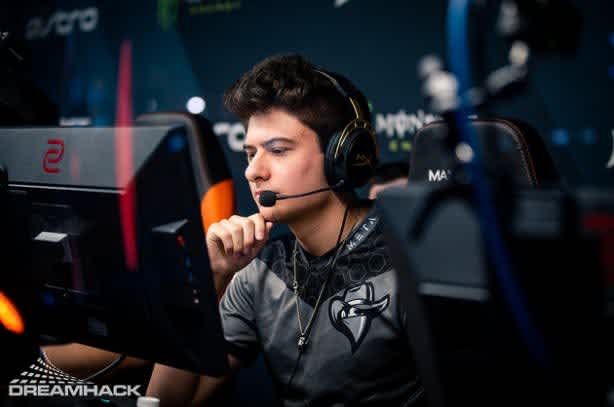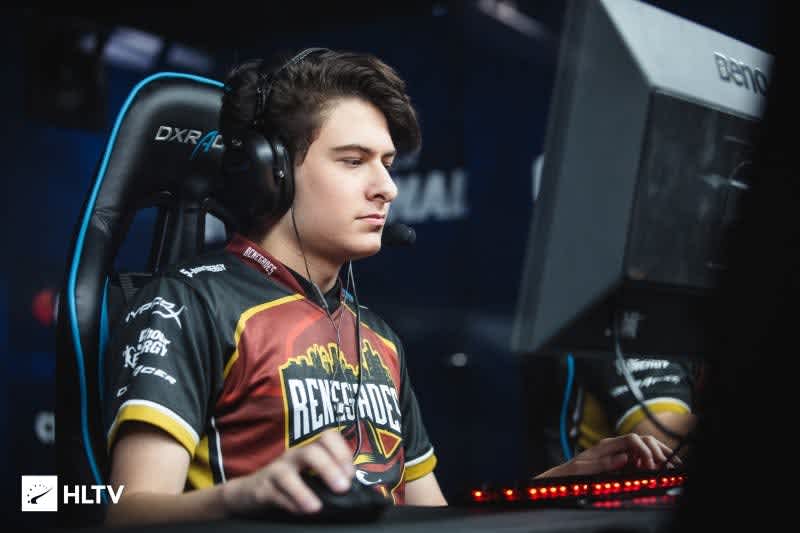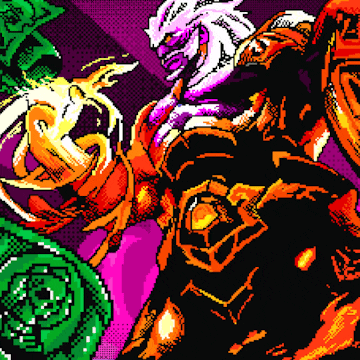Novelty over Consistency: The Dismissive Renegades
Renegades are a team almost entirely defined by the implications of their Australian core. From the perspective of international audiences, they’re a novelty. A different flag in a scene like North America has a tendency to do that. In the eyes of their region, they’re the ones who escaped; the best of Australia transcending the domestic pull and making it big overseas. But for their opponents, Renegades are nothing overtly special.
While smaller regional teams like Vega or Tyloo play in a unique way that catches top teams off-guard, Renegades plays about as close to vanilla Counter-Strike as possible. For all the novelness of having a core of Australians, Norwegian star rifler, and North American IGL/AWPer, Renegades’ in-game style doesn’t drop jaws. They’re like the new kid at school who becomes a chameleon of social norms just to fit into a group of friends. You’re not out-of-place, but your also not anybody, either. You just are.
Renegades just is.

There’s no threat of the Australian core being broken apart. They live in a gaming house with venture capital backing it, aren’t desirable enough to other teams to be poached and seem content with finding upsets at IEM Sydney every year. But this isn’t for lack of trying. Renegades try their damndest to play like an elite European team every chance they get.
Their CT-sides, especially, are up-to-date with the meta. Rotations are tight, mid-round aggression is flawless and they use set-ups that make sense not only on international stages, but within the context of their team dynamic. But just because you adopt the veneer of a top team doesn’t mean you become one. Renegades attempts to play to the textbook and make rational calls within a structured system should serve as a good reference point for just how good sides like Liquid, Astralis or MIBR actually are at this style. While the Australian/American/Norwegian mix will start with the right set-up, rotate correctly and make solid calls, the ‘glue’ of the micro that holds this together isn’t there. They lack firepower, generally speaking to make these decisions intimidating and seemingly rely on the mistakes of their opponents more than the success of their own game.
Because of this situation, Renegades often play a boring brand of CS that rarely deals damage at an elite level but can grind wins consistently in online NA pro play.

Their main star, fortunately, is Nifty, who is one of the most explosive playmaking AWPers in NA. While a Renegades round can often fall apart due to losing opening duels, Nifty has a flashy enough flicking style that will at least make a round in disarray interesting.
This is especially apparent on T-side, where their ‘aggressive’ rounds lack the energy or explosiveness that someone like Tyloo or Vega flaunt so easily. If their CT-sides seem bland in their attempt to play to a perceived model of ‘right’ CS, then their T-sides are clunky, flavourless, and often execute reliant. Nifty is often relied upon to work openings or fast trades off of AZR/jkaem/USTILO, or even more likely, jks is left in a very tough clutch situation which he attempts to close.
Their lacking T-side ‘punch’ isn’t for lack of aggressively inclined pieces though. AZR, USTILO, and jkaem seem to be a fragging core willing to lead on the front foot. They are just inconsistent in ever finding the opening duels to justify this inclination for momentum. Underneath the unmistakable plainess off Renegades is this primary issue: the oscillation of their firepower. If Nifty is having an off-day, who is going to be the star?

Jks isn’t active enough in a round bar with the secondary AWP to take over games. AZR is the hard-entry and is cold more than hot, and USTILO and jkaem take turns in having their bouts of individual form. Very rarely, if ever (outside of Sydney), do we see this Renegades line-up have multiple players in-form together. It seems one can fire, but rarely the team.
This leaves them in the strange position of having a system that seems to be totally fine on-paper, and five players who all have their moments across a tournament, but no real results to show for either of these elements. As for their fans. Well, they are left with no clear direction as where to invest their energy game-to-game and support a team which, unfortunately is just boring in the way they win games.
So although Renegades boast the novelty in nationalities, the way they construct themselves in-game makes them invisible on the international stage. They lack the punch to prop up their textbook structure, or the consistently dominant stars to transcend it. Instead, we are given a unique on-paper side with a regressively boring in-game dynamic that treads water enough so it doesn’t need to really change.
Yeah, the boys.





